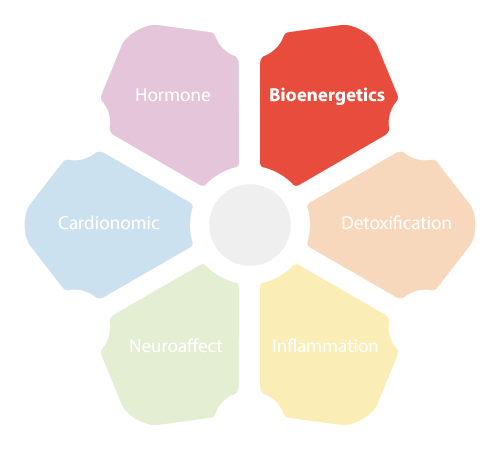
 It is well known that the rate of obesity in the United States has become a problem, and it has many people worried. There are a lot of factors contributing to obesity, but recently the focus has been about fructose. As time goes on, fructose has become more and more incorporated in the diet which the vast majority of individuals in the United States eat. It is becoming clear that this is due to high-fructose corn syrup, which is saturating the prepared food industry. It has become a major contributing factor to calorie intake especially among adolescents. Fructose is, by definition, a simple carb which originates in vegetables as well as fruit. It is hidden in many foods and drinks. And when consumed fairly often, it can initiate stress in the body and even cause adrenal fatigue. But how bad is it compared to other sugars, and is it bad enough to avoid fruits and vegetables?
It is well known that the rate of obesity in the United States has become a problem, and it has many people worried. There are a lot of factors contributing to obesity, but recently the focus has been about fructose. As time goes on, fructose has become more and more incorporated in the diet which the vast majority of individuals in the United States eat. It is becoming clear that this is due to high-fructose corn syrup, which is saturating the prepared food industry. It has become a major contributing factor to calorie intake especially among adolescents. Fructose is, by definition, a simple carb which originates in vegetables as well as fruit. It is hidden in many foods and drinks. And when consumed fairly often, it can initiate stress in the body and even cause adrenal fatigue. But how bad is it compared to other sugars, and is it bad enough to avoid fruits and vegetables?
Fructose is a simple sugar that is typically found in vegetables, fruits, and other natural food products such as honey. It is also used as a sweetener and is about half the sugar in table sugar. As high-fructose corn syrup, it is also used in several types of convenience foods being sold today.
Fructose shares a similar chemical formula with glucose. However, unlike glucose which is easily absorbed, fructose must be broken down by the body before it can be used. This reduces the spike in blood sugar, but it also puts more strain on the liver, which must process out the by-products, and is why high fructose consumption has been associated with fatty liver disease.
There have been a number of studies investigating the effect fructose has on different areas of health. These studies have involved animals as well as humans. A study was conducted by the Beckman Institute for Advanced Science and Technology at the University of Illinois about fructose. This study went on for a couple of months and focused on two specific groups of mice. Some of the rodents were fed food containing approximately 18% glucose, and the others were given the same amount of fructose, which is about equal to what young people eat in the United States. There was no difference in the number of calories consumed. Those mice that were fed fructose were less active and had an increase in liver mass, body mass, and fat mass.
One of the biggest differences between fructose and glucose is that fructose is mainly metabolized in the liver. Many are of the opinion that it may even result in hyperlipidemia due to arde novo lipogenesis. Some studies have been done on the cognitive effects involved with consuming fructose, but these results have been somewhat debated. While some distinctions in cognitive function seem to have been observed, others argue the research methods were inadequate.
It is not yet known if these results are due to fructose itself or if it is because of the overall increase in energy intake. It appears that fructose’s adverse metabolic effects could be the main reasons that individuals experience insulin resistance as well as weight gain.
The consequences which fructose has on the metabolism are, currently, somewhat disagreed upon among scientists. Some research suggests that it could be the intake of extra calories as opposed to fructose in and of itself. A lot of these studies and the data they contain are based primarily on short-term effects; it is, thus, more challenging to be sure of the long-term consequences of eating fructose.
Most of the studies which have been conducted about fructose also center around animals. In the end, the research has suggested metabolic disruptions which are connected to increases in de novo lipogenesis, insulin resistance, dysregulation of lipid profiles, and body weight gain.
Unfortunately, many of these studies have had fructose dosages which were unrealistic and did not take calorie intake into consideration. However, this was not the case with the study which was done by the Beckman Institute.
What is likely is that high-fructose corn syrup intake in large amounts, such as that found in soft drinks, is much more likely to be associated with problems such as weight gain, fatty liver, insulin resistance, and overall stress on the body. Fructose from fruits in moderate amounts, however, is likely not problematic for most people.
To understand more about fructose and how its excessive consumption can stress the body, it helps to look at how the body is designed to respond to stress.
 Generally, fighting off stress is the responsibility of the body’s NeuroEndoMetabolic (NEM) Stress Response system. The NEM stress response system is made of six circuits composed of groups of organs and systems. The bioenergetics circuit, detoxification circuit, hormone circuit, cardionomic circuit, inflammation circuit, and neuroaffect circuit work both independently and interdependently to deliver the body’s fight or flight response.
Generally, fighting off stress is the responsibility of the body’s NeuroEndoMetabolic (NEM) Stress Response system. The NEM stress response system is made of six circuits composed of groups of organs and systems. The bioenergetics circuit, detoxification circuit, hormone circuit, cardionomic circuit, inflammation circuit, and neuroaffect circuit work both independently and interdependently to deliver the body’s fight or flight response.
One of the NEM stress response circuits, that is most highly concerned about fructose consumption, is the bioenergetics circuit. Made up of the pancreas, liver, and thyroid, this circuit is primarily concerned with the body’s production of energy in response to stress.
Once stress is detected, the bioenergetics circuit is activated. Here the thyroid produces thyroid hormones that increase the body’s basal metabolic rate. This helps to ensure that the body has enough energy to deal with any threat the stress has presented. Meanwhile, the pancreas is responsible for producing insulin which helps the cells get the glucose needed to give the body an energy boost. And finally, the liver works to clear away any excess metabolites that are generated due to the body’s metabolism.
When there is significant fructose consumption, as with high levels of any sugar, the body experiences frequent spikes in blood sugar, followed by insulin spikes to process the blood sugar, and eventually becomes resistant to insulin. As a result, the body’s ability to utilize glucose for energy is disrupted. While some argue that glucose is worse than fructose because it causes greater spikes in blood sugar, others point out that fructose may be worse in some cases, because the body cannot process it as easily, it creates liver issues, not everyone can digest it, and there is so much in the American diet.
Fructose is typically converted by the liver into triglycerides. And when a significant amount of fructose is consumed, it can lead to high levels of triglycerides in the body. Although the mechanism is not yet clear, high levels of fructose consumption have been linked to fatty liver disorder.
In the end, this can lead to disruption of the NEM stress response system, reducing the body’s ability to cope with external sources of stress in a healthy and effective manner. This disruption can also manifest itself in the form of symptoms that include breathlessness, reduced libido, sleeping pattern deregulation, imbalanced gut microbiome, and a reduced capacity to heal from colds and flu. This can exacerbate the effects of stress in the body.
 As the body becomes stressed due to excessive fructose consumption, the effects of stress also worsen. For instance, stress is associated with obesity, and fructose can also cause the body to experience weight gain. This may explain why a study in Illinois found that rodents who were fed with fructose experienced increases in body mass and fat mass. There was also a noted increase in the subjects’ liver mass.
As the body becomes stressed due to excessive fructose consumption, the effects of stress also worsen. For instance, stress is associated with obesity, and fructose can also cause the body to experience weight gain. This may explain why a study in Illinois found that rodents who were fed with fructose experienced increases in body mass and fat mass. There was also a noted increase in the subjects’ liver mass.
Stress has also been known to cause mood swings, anxiety, and depression. According to various studies, the excessive consumption of fructose can also make these conditions worse. A study in India found that subjects that were fed a high fructose diet displayed greater anxiety. In contrast, a study in Austria found that reducing fructose in one’s diet can result in improved mood, which can also help you deal with stress in a more effective manner.
On the other hand, stress is also associated with an increased risk for cardiovascular diseases. A study in London found that experiencing some emotional stress in the short term can trigger cardiac events among people suffering from advanced atherosclerosis. Because fructose is involved in the creation of fat, increased consumption of this type of sugar can also cause more fat to accumulate in one’s arteries. This, in turn, also increases one’s risk for major cardiovascular problems such as stroke.
And just as stress affects one’s ability to think clearly, high fructose consumption has also been found to slow down brain function. A study in California found that a high fructose diet can negatively affect the brain’s ability to remember and learn information. Similarly, another study found that high levels of fructose may damage communication between the brain cells in the body and increases the amount of toxic molecules in one’s brain.
Fructose has also been linked to obesity, just like stress itself. One study in the Nutrients journal found that fructose can alter your lipid profile as it affects your glucose metabolism. This is why it tends to have more obesogenic potential than other types of sugar. Consuming more fructose can lead to an increase in fat deposits.
As fructose worsens stress and symptoms of stress, the body becomes at greater risk for adrenal fatigue.
Adrenal Fatigue Syndrome (AFS) is a condition that is caused by prolonged or chronic stress. When the body continues to suffer from stress internally, there will come a point when the body is overworked and unable to cope stress any longer. When this happens, production of critical hormones also becomes greatly reduced. At some point, the body, especially the adrenal glands, are no longer be able to meet hormone production requirements. When this happens, one suffers from a state of significant hormonal imbalance. This, in turn, triggers adrenal fatigue.
To allow the body to recover, one must make significant changes to their lifestyle and diet as soon as possible. This includes making a conscious effort to reduce one’s consumption of foods high in sugars such as fructose and high-fructose corn syrup.
 Now that you know all about fructose and its effects on your health, you may want to try these tips for reducing it in your diet.
Now that you know all about fructose and its effects on your health, you may want to try these tips for reducing it in your diet.
Please note that consuming fructose through vegetables and fruit is safe for your health.
The negative effects of fructose occur primarily when eating fructose as an additive, as in high-fructose corn syrup or as added sugar. This type of fructose can significantly stress the body. This becomes a particularly serious concern when you often consume processed foods that were made using high-fructose corn syrup.
That said, there are a number of ways to effectively reduce the amount of fructose that you consume daily. You may ask the help of your physician or nutritionist to be able to make diet modifications as safely as possible.
Some healthy guidelines for reducing fructose in your diet include:
Commercial soft drinks are typically made with a lot of high-fructose corn syrup or added sugar. Hence, drinking even a single can or bottle can add a lot of sugar and stress to your NEM stress system. Over the long-term, consuming too many soft drinks can even trigger adrenal fatigue in your body. Instead of drinking sweetened carbonated beverages, enjoy a refreshing glass of plain carbonated water instead.
Unfortunately, a good number of processed foods available today contain high amounts of high-fructose corn syrup. These include store-bought biscuits, instant noodles, crackers, chips, candy, and many more. Moreover, certain ingredients in home-prepared meals may also contain significant amounts of fructose. These include ketchup, sweet pickle relish, soy sauce, coconut cream, and other similar food ingredients. In addition, commercially baked goods also tend to contain high-fructose corn syrup.
As a consumer, it’s your responsibility to make healthy choices when you are shopping for food. That means being careful to read food labels first before deciding to buy anything. Pay close attention to the ingredients list. If you see high-fructose corn syrup, corn syrup, or added sugar listed in the ingredients, you may want to avoid purchasing the item. It is also a good idea to study the nutrition information panel to see how much sugar each serving of the food product contains.
Keep in mind that fruits tend to contain a significant amount of fructose. If you have blood sugar issues or are concerned that you may have an inability to digest fructose, it may be best to eat fruits in moderation. However, given the health benefits of fruits and vegetables, they should still be a big part of your diet for most people. To determine the proper serving size, you can consult a nutritional guide or ask your dietitian.
 If you are recovering from adrenal fatigue, it may be best to eat fruits with relatively lower amounts of fructose per serving size. These include cantaloupe, honeydew, raspberries, apricot, peaches, plums, nectarines, orange, blackberries, blueberries, cherries, strawberries, pineapple, and grapefruit.
If you are recovering from adrenal fatigue, it may be best to eat fruits with relatively lower amounts of fructose per serving size. These include cantaloupe, honeydew, raspberries, apricot, peaches, plums, nectarines, orange, blackberries, blueberries, cherries, strawberries, pineapple, and grapefruit.
Also, if you enjoy preparing meals with tomato, it is best to use fresh tomato, canned tomatoes, or tomato paste instead of tomato sauce. Typically, prepared tomato sauce contains as much as 2.03 grams of fructose per serving. In contrast, fresh tomato and other tomato products have significantly less fructose.
Keep these guidelines about fructose reduction in your daily diet in mind. Remember, fructose is not completely bad for your health. However, consuming it in excess, as additives, and in processed foods, can lead to serious health problems including adrenal fatigue. Avoid this by eating healthier so that you can start to feel better inside and out.
© Copyright 2016-2019 Michael Lam, M.D. All Rights Reserved.
What you should remember about fructose is that consuming it in excess can lead to problems in your overall health. This is because processing excessive amounts of fructose can trigger stress from inside your body. This leads to a disruption in your NEM stress response system and causes body systems to become overworked.
